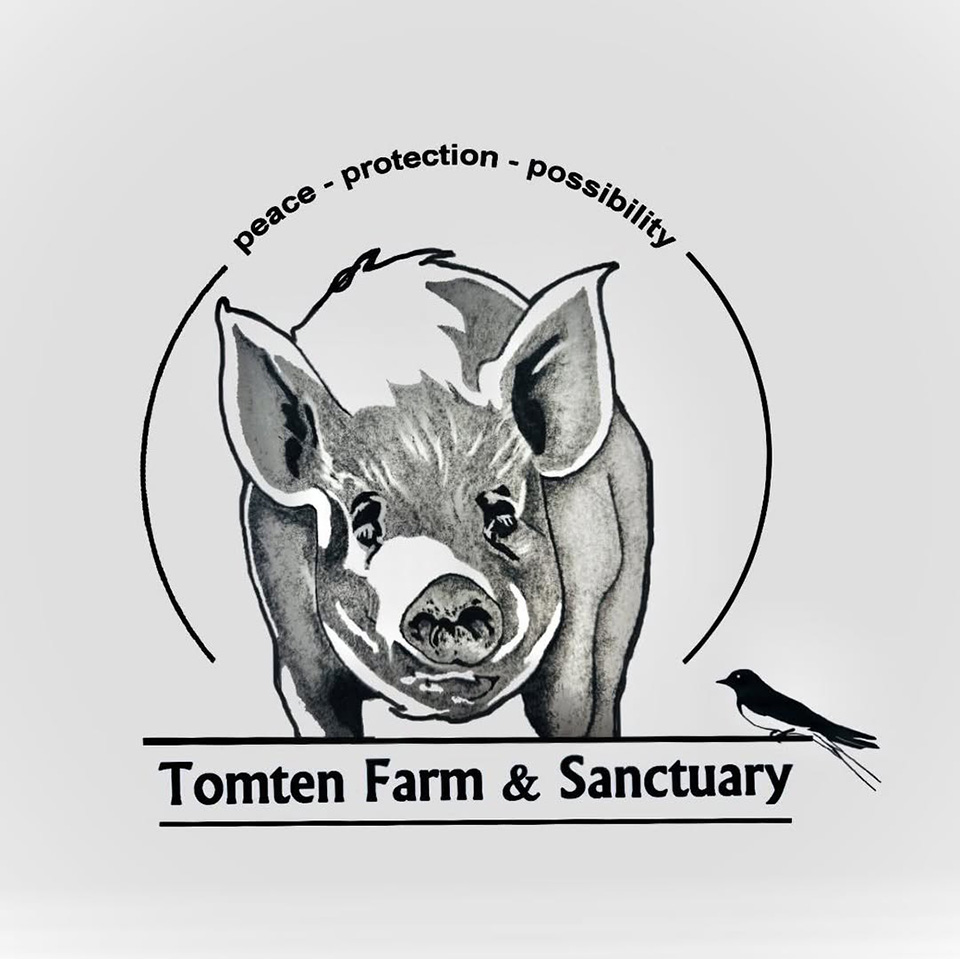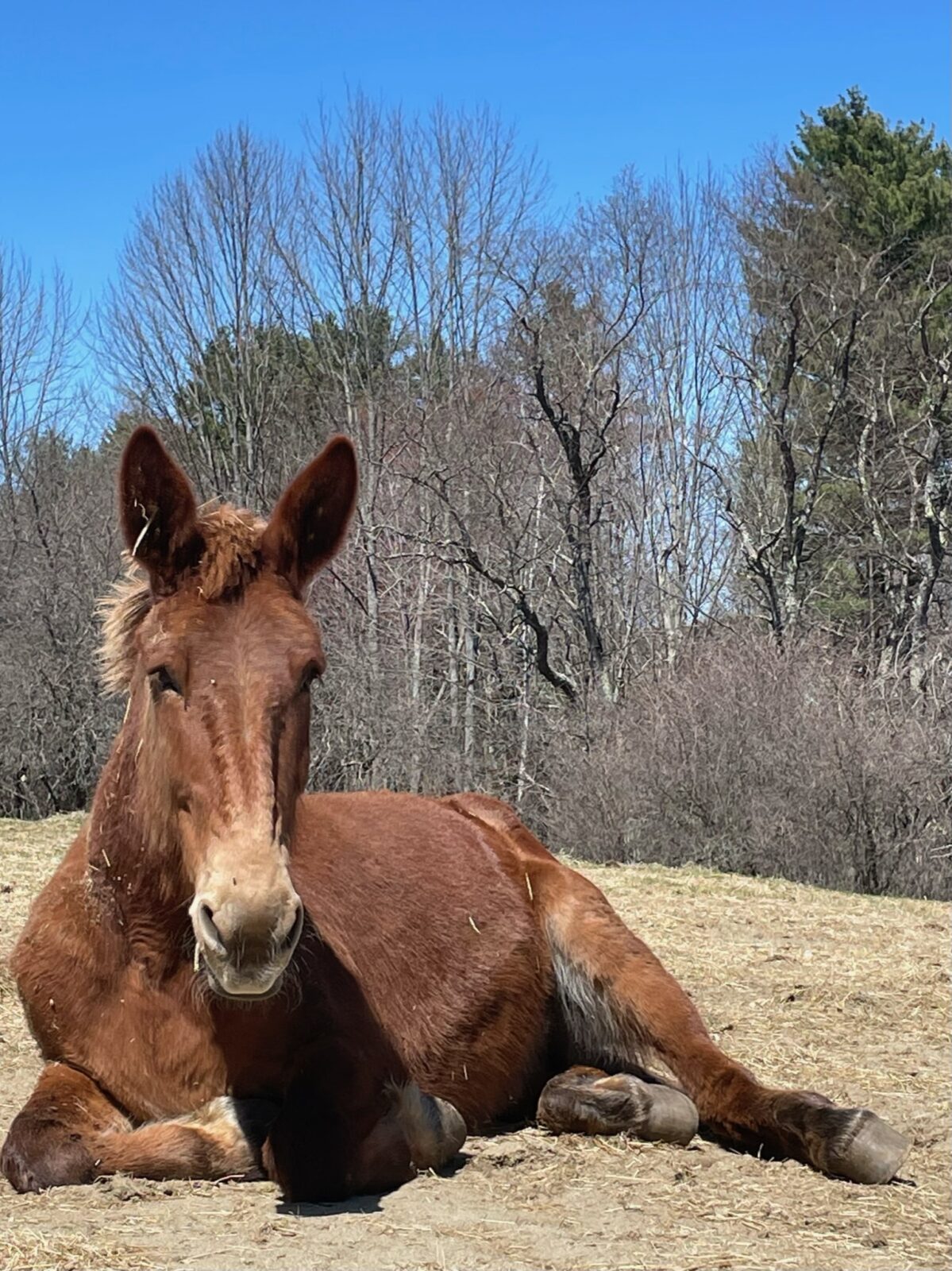Meet the Mules
Click on image to read individual stories.
Meet and Greet. Samule Halfhorse
Six years ago we met a very special draft mule at the New Holland auction and instantly fell in love. Sadly, for multiple reasons, we couldn’t step up to offer him a home and he was one of many we left behind. I cried. In fact, despite our rule against showing emotion at sale, an act that can certainly make you a target for getting bid up, I got publicly teary eyed. So much so that I had to excuse myself to the washroom, look myself in the eye and tell myself to get it together and do my job. Our job THAT day was saving the lives of three donkeys, Beatrice, Fig, Mrs. Lily Jones (and while we were unaware of it at the time, saving Beatrice's stowaway who was would become "Baby B"). But I remember that mule well and the look in his eyes and we vowed to make a place for another like him. But, for one reason or another, despite the placeholder spot, all that had to go into keeping that promise had not yet come together.
But then, one night as I was about to drive home to the farm from work, it looked like the stars were beginning to align. THIS mule showed up in my feed. He was sore, with big swollen knees, worn out and suspected to have an affliction known as stringhalt (Stringhalt is a sudden flexion of one or both hind legs, most easily seen while the horse or mule is walking or trotting. It is more common in donkeys and mules than in horses.) I suspect he was all used up from plowing the fields.
I also learned that this mule was owned by Rotz Livestock who, as far as I know, is the only kill buyer in Pennsylvania who has a contract with The Viande Richelieu, Inc. plant in Quebec, Canada. According to their website the Viande company was "established in 1986, [and] is a Canadian business specialized in raising and transforming beef, bison, horse, and wapiti." Translation: a slaughterhouse or as the British call them an abattoir.
Transparency Note: Typically we do not buy from the kill buyer but there are circumstances like these that we have made an exception. Does Rotz make a profit? Absolutely. Does he then use the funds to buy another, sometimes two? He sure does. Is it a benefit to him that there are volunteer networks who try very hard to place the ones that may not survive the trip to slaughter? Of course it is. That is, sadly, the way it is and for the sake of transparency, we think you should know how it works when a life is saved from a direct-ship pen like Rotz Livestock. That is also how it works if we were to outbid him at auction. With a quota to fill, he simply steps up for another. The truth is, as long as there are unwanted equines, he and buyers like him are not going away.
Sharing this with you helps organizations like ours raise awareness. It also allows lives like "our" mule to be saved. Thankfully for SaMule, at that time, Rotz Livestock allowed rescue volunteers to network some of his equines from arrival until they shipped and that is how we happened upon him. Sadly, since SaMule's save, these dedicated ladies who networked out his stock are no longer allowed to advocate on behalf of these needy lives and Rotz Jr has reduced public access even more than before.
Make no mistake. We absolutely hate that any horse or mule or donkey might find themselves facing this terrible fate. The thought of it makes us ill. That tragedy is why we do what we do. And yes, we would absolutely prefer to personally go to auction where we can simply outbid folks like him and not line their pockets with even a few dollars. But remember this: even when we do that, he simply buys another to make his quota and he does so again and again and again.
If you could ask whichever life we save, they would say that they are grateful and they do not care how they found themselves in trouble or how we managed to save them. They just wanted to get out of there and simply wanted to survive. Pragmatically, we know that we cannot save them all no matter how hard we try. While we do what we can in our community, we really wish we had had the opportunity to personally attend sales like the one where SaMule found himself, but covid has been a tricky thing these past two years. We have a responsibility to our animals, volunteers, Board, families, your community and ours to do all we can to reduce our (and everyone's) risk. Our first obligation is to be here and healthy for the lives that are already here and so we have continued to wait to attend.
Arrangements for SaMule were put into the works. He was scheduled to get picked up from the Rotz Livestock pen as soon as possible and shipped to a local PA quarantine facility recommended to us by a Rescue with whom we network with and respect. While there, his blood was taken and he temporarily waited until he had received the veterinary all-clear to come here carrying with him his required health and a Coggins certificate. (Coggins is a blood test identifying if a horse is a carrier of Equine Infectious Anemia, a viral disease found in equines. A negative Coggins test is required for all travel between states and at most equine facilities.) Then upon arrival, SaMule entered official quarantine. Every day we kept our fingers crossed that he would remain healthy but after exposure in the direct-ship facility to all those horses coming from so many different places, the odds were not in his favor. Thankfully, somehow, he beat the odds not once but twice, first escaping slaughter and second escaping disease!
Sadly, our big lovable mule has quite a bit of arthritis among a few other things that need to be addressed. As we know more we will, of course, share more and as soon as the sun sucks up the stubborn mud on our road and it is safe to hook up the Gracemobile, he will be taking a trip to New England Equine. For now however, he is obviously relieved and has embraced Tomten in a way that tells us he never wants to leave. And he never will. How lucky are we to have rescued him? How lucky is he to have you on his journey?
SaMule HalfHorse
Facts about Mules
Coming soon...


